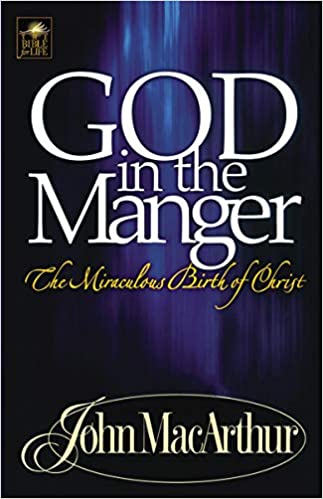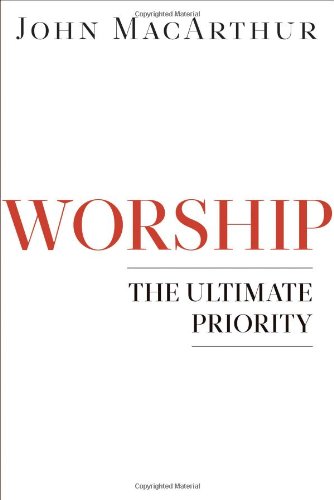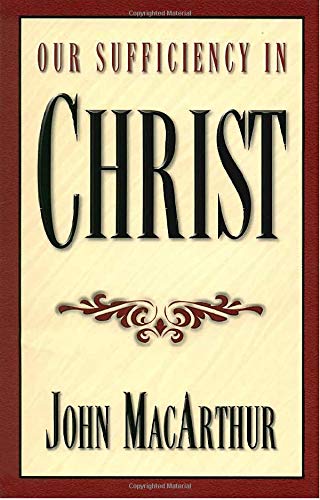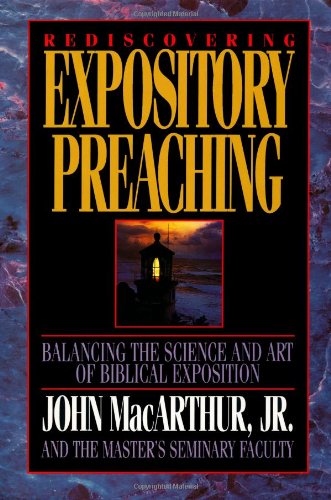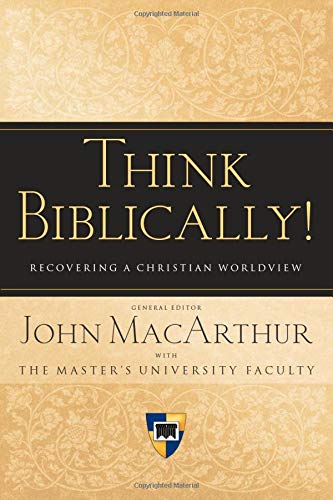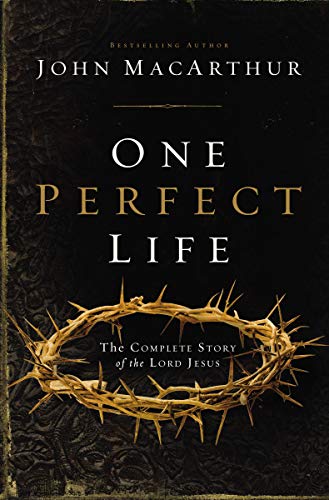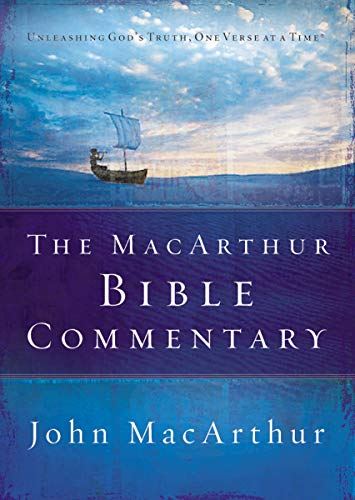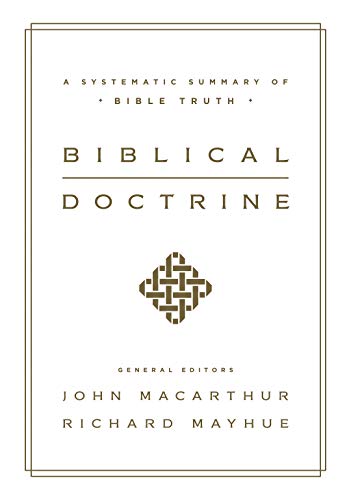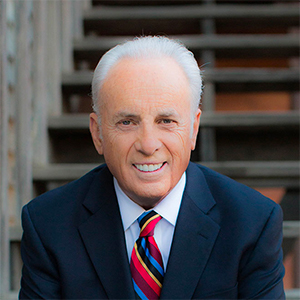
Quotes by John MacArthur
Faith and obedience are inescapably related. There is no saving faith in God apart from obedience to God, and there can be no godly obedience without godly faith.
Fearing God has two aspects. The first is reverence. It is a sacred awe of God’s utter holiness. It involves the kind of respect and veneration that results in fear in the presence of such absolute majesty. The second aspect is fear of God’s displeasure. Genuine faith acknowledges God’s right to chasten, His right to punish, and His right to judge.
Not to rebuke sin is a form of hatred, not love (Lev. 19:17). Refusing to warn a person about his sin is just as unloving as refusing to warn him about a serious disease he may have. A person who does not warn a friend about his sin cannot claim love as his motive.
[Among the] three categories of spiritual gifts there were temporary sign gifts. These were specific enablements given to certain believers for the purpose of authenticating or confirming God’s Word when it was proclaimed in the early church before the Scriptures were written. The temporary sign gifts included prophecy (revelatory prophecy), miracles, healings, tongues, and interpretation of tongues. The sign gifts had a unique purpose: to give the apostles credentials, that is, to let the people know that these men all spoke the truth of God. Once the Word of God was inscripturated, the sign gifts were no longer needed and they ceased.
His birth was common. Men wouldn’t have had a common birth for such a King. But it was celebrated with hallelujahs by the heavenly host in the heavens above. His lodging was poor and men wouldn’t have put Him in a stable but it was attended to by celestial visitants. It was marked by a conflux of stellar bodies. He had not the magnificent equipage of other kings but He was attended by multitudes of patients seeking and obtaining healing of soul and body. He made the dumb that attended Him sing His praises and the lame leap for joy and the deaf to hear His wonders and the blind to see His glory. He had no guard of soldiers, no magnificent retinue of military men, but centurions took orders from Him…and so have millions across the earth. He didn’t control a vast empire of those who did all of His bidding, but the waves and the winds and the storms which no early power can control obeyed Him. And death and the grave durst not refuse to deliver up their prey when He demanded it. He didn’t walk on velvet tapestry but when He walked on the sea the water held Him up. All parts of the creation except sinful men honored Him as their creator. He had no vast incomprehensible treasure of wealth but when He needed His money to pay His taxes, a fish yielded it up out of its mouth. He had no barns and He had no corn fields, but when He wanted to fill the hearts and the stomachs of a multitude, He created the food right out of His own hands. And no monarch in history ever entertained that way. He didn’t have the fantastic group of people sorrowing like other people have on occasions that demanded sorrow on His behalf, but the frame of nature itself solemnized the death of its author, heaven and earth were mourners, the sun was clad in black and if the inhabitants of the earth were unmoved, the earth itself trembled under the awful load. And there were few to pay the Jewish custom of rending their garments at His death, so the rocks took their place and rent their own bowels. He didn’t have a grave of His own, but other men’s graves open to Him. He came not as the subject of death, but as the conqueror and invader of its territory and He rose victorious.
Offending Christ. The article originally appeared (http://www.gty.org/Resources/Sermons/2320) at www.gty.org. © 1969-2008. Grace to You. All rights reserved. Used by permission.
We must not be so engulfed in trying to force social behavior to conform to our standards that we become enemies of those our Lord has called us to win to Himself. We must reject sin and never compromise God’s standards of righteousness. But we also must never engage in defamation and denigration of the lost sinners who make up our corrupt culture. When Christians become political, sinners become the enemy instead of the mission field.
Statistics show that the average child living at home in America watches at least twenty-eight hours of television each week. (For some kids, the total is much higher.) Programming that targets young people is often the very worst at deliberately glamorizing sin. By the time most young people graduate from high school, they have been overexposed to the grossest kinds of evil through “entertainment” media in mind-numbing ways – so that nothing seems particularly appalling anymore. After all, drug use, immorality, violence, and profanity are standard fare on television. When a whole generation has been raised on a steady diet of that stuff, it’s no wonder that sin no longer seems exceedingly sinful to them.
This Passover [just before our Lord’s sacrifice], after 1500-plus years of Passovers, was the last divinely sanctioned and authorized Passover ever held. Any Passover ever celebrated after this one is not authorized by God. It is a remnant of a bygone economy, of an extinct dispensation, of a covenant no longer in vogue. It is vestigial. It serves no significant purpose. Jesus here celebrated the Passover as a way to bring it to its end. The bell tolled in the upper room for the old economy. Christ ended the long years of Passover and began a new memorial feast which He begins to institute in verse 26 [of Matthew 26]. And this new feast is the feast not of the old economy but the new economy, not the old covenant but the new covenant, not the Old Testament but the New Testament, not looking to a lamb in Egypt but a Lamb of God on a hill of Calvary. So, Jesus ends the old before He begins the new. And after having drawn the curtain on the Passover of the old economy, He institutes the feast of the new.
The Last Passover Part 2, The article originally appeared (www.gty.org/Resources/Sermons/2383_The-Last-Passover-Part-2) at www.gty.org. © 1969-2008. Grace to You. All rights reserved. Used by permission.
All sin results from failure to act in faith.
Deny that we are justified by faith alone, and you must devise an explanation of how we can make the transition from our imperfect state in this life to the perfect state of heaven. Purgatory is where Roman Catholics believe most people go after death to be finally purged of their sins and gain whatever merit they may be lacking to enter heaven. Catholicism teaches that this will involve intense pain and suffering.
What Will Heaven be Like taken from The Glory of Heaven by John MacArthur, copyright 1996, Crossway Books, a division of Good News Publishers, Wheaton Illinios,60187, www.crosswaybooks.org, p. 74.
Although Catholic doctrine denies that the imputed righteousness of Christ is sufficient to save sinners in this life, it does allow the imputation of righteousness from earthly sinners to those in purgatory. Candles are lit, prayers are prayed, and Masses are said for the dead. Supposedly the righteousness earned via the sacrament is imputed to the person in purgatory, and that shortens his or her stay there.
What Will Heaven be Like taken from The Glory of Heaven by John MacArthur, copyright 1996, Crossway Books, a division of Good News Publishers, Wheaton Illinios,60187, www.crosswaybooks.org, p. 75.
For all believers, because we are fully justified, there can be no condemnation. No post-mortem suffering is necessary to atone for remaining in sin; all our sins are covered by the blood of Christ. No merit is lacking that must be made up (Isa. 61:10).
What Will Heaven be Like taken from The Glory of Heaven by John MacArthur, copyright 1996, Crossway Books, a division of Good News Publishers, Wheaton Illinios,60187, www.crosswaybooks.org, p. 75.
If anyone were a candidate for purgatory, [the] thief [from Luke 23] would be. Moments before, he had taunted Christ along with the unrepentant thief (Mark 15:32). His repentance was a last-minute change – while he was literally in his death throes. Yet Jesus promised to see him that very day in paradise.
What Will Heaven be Like taken from The Glory of Heaven by John MacArthur, copyright 1996, Crossway Books, a division of Good News Publishers, Wheaton Illinios,60187, www.crosswaybooks.org, p. 78.
Jesus had little trouble reaching the harlots, the thieves, robbers, criminals, outcasts, and sinners of society, including the tax collectors and the extortionists, but He had an almost impossible time reaching the religious, self-righteous, moral people who were under the illusion and self-deception that because of their goodness, everything was OK between them and God. They recognized no sin, so they needed no Savior. That is always the danger of morality. Morality creates an illusion of safety when in fact the person who is moral may be in the greatest danger of all.
Reformation vs. Relationship, The article originally appeared (www.gty.org/Resources/Sermons/2296) at www.gty.org. © 1969-2008. Grace to You. All rights reserved. Used by permission.
Morality, in and of itself, is a damning thing. Self-righteousness is a damning thing. You’d be better off to be immoral and face the reality of your needs so that you would come to a Savior, than to live under the illusion that because you have a moral code on the outside, all is well on the inside between you and God.
Reformation vs. Relationship, The article originally appeared (www.gty.org/Resources/Sermons/2296) at www.gty.org. © 1969-2008. Grace to You. All rights reserved. Used by permission.
Immoral people didn’t blaspheme and cry for Christ’s death. Immoral people didn’t plot His execution. The harlots, thieves, and murderers didn’t do it; the religious people did it. That’s the curse of morality – moral, religious, self-righteous people, confident they are holy in themselves, are utterly deceived into believing that Satan has nothing to do with them, and they have no vigilance or protection, and they can be swarmed by demonic hosts [see Matthew 12:45].
Reformation vs. Relationship, The article originally appeared (www.gty.org/Resources/Sermons/2296) at www.gty.org. © 1969-2008. Grace to You. All rights reserved. Used by permission.
Understanding Bible prophecy encourages in two unique ways. First, it serves as a reminder that God controls history. When, you read from the pages of Scripture how He keeps His promises, your faith is strengthened… By reflecting on the fulfilled promises of the past, you can find great comfort as you look toward the future. Second, understanding God’s promises for the future provides a solid foundation to which you can anchor your hope – a sturdy shield with which you can deflect your doubts and fears about tomorrow… When you reflect on God’s plans and promises for you and for the world, you can face the future without fear.
Typically, the prophet of the Word of God assigned by God to give a far-future prophecy gave also a near prophecy to establish his credentials. In other words, if he proves to be accurate in the historically verified prophecy, we can believe him for the one that’s so far in the future that we can’t see it.
Warnings of Coming Peril, The article originally appeared (www.gty.org/Resources/Sermons/2370_Warnings-of-Coming-Peril) at www.gty.org. © 1969-2008. Grace to You. All rights reserved. Used by permission.
Because God is so concerned for the holiness of His people, they should be equally concerned. The church cannot preach and teach a message it does not live and have any integrity before God, or even before the world. Yet in many churches where there is no tolerance for sin in principle there is much tolerance for it in practice. And when preaching becomes separated from living, it becomes separated both from integrity and from spiritual and moral effectiveness. It promotes hypocrisy instead of holiness. Divorcing biblical teaching from daily living is compromise of the worst sort. It corrupts the church, grieves the Lord, and dishonors His Word and His name.
All of Scripture is both from and about Jesus Christ. The Old Testament predicted and prepared for His incarnation. The gospels tell the history of His earthly ministry, and Acts the history of His church in its early years. The epistles are commentaries of His message and work, and the book of Revelation is the final testimony of His reigning and imminent return. What Jesus said of the Old Testament is even truer, if this were possible, of the New: “You search the Scriptures…and it is these that bear witness of Me” (Jn. 5:39).
God’s Word is a revelation – a revealing of truth to make the dark things light, bringing eternity into bright focus. Granted, there are things in Scripture that are hard to understand (2 Peter 3:16). But taken as a whole, the Bible is not a bewildering book.
Truth in a World of Theory from Our Sufficiency in Christ, 1991, Crossway Books, a division of Good News Publishers, Wheaton Illinois 60187, www.crosswaybooks.org. p. 83.
Some people get so caught up in their own holiness that they look at the Trinity for a possible vacancy.
The true convert is a disciple, a person who has accepted and submitted himself to Jesus Christ, whatever that may mean or demand. The truly converted person is filled with the Holy Spirit and given a new nature that yearns to obey and worship the Lord who has saved him. Even when he is disobedient, he knows he is living against the grain of his new nature, which is to honor and please the Lord. He loves righteousness and hates sin, including his own.
Contemporary theologians have fabricated an entire category for this type of person – the “carnal Christian.” Who knows how many unregenerate persons have been lulled into a false sense of spiritual security by the suggestion that they are merely carnal? Christians can and do behave in carnal ways, but nothing in Scripture suggests that a real Christian might pursue a life-style of unbroken indifference or antagonism toward the things of God. Christians do not masquerade as children of the devil. The very reverse is true; Satan pretends to be an angel of light, and his servants imitate the children of righteousness (2 Corinthians 11:14-15).
A fleshly/carnal life will corrupt morals, weaken personal relationships, produce doubt about God and His Word, destroy prayer life and provide fertile ground for heresy.
God is the only being in all of existence who can be said to possess inherent glory. We don’t give it to Him; it is His by virtue of who He is. If no one ever gave God any praise, He would still be the glorious God that He is, because He was glorious before any beings were created to worship Him… His glory is His being – simply the sum of what He is, regardless of what we do or do not do in recognition of it.
We have only the time allotted by God, and none of us knows when it will run out. Every Christian life runs by His divine timetable and against His divine clock. We do not know how long He will hold open the door of a given opportunity or of our entire time of service. “Be careful how you walk,” Paul counsels, “not as unwise men, but as wise, making the most of your time, because the days are evil” (Eph. 5:16). God gives us many things without limit – His love, His grace, and many others. But His gift of time is strictly measured.
There is no connection between the worship of idols and the use of Christmas trees. We should not be anxious about baseless arguments against Christmas decorations. Rather, we should be focused on the Christ of Christmas and giving all diligence to remembering the real reason for the season.
Repentance is more than simply being sorry for sin. It is agreeing with God that you are sinful, confessing your sins to Him, and making a conscious choice to turn from sin and pursue holiness (Isaiah 55:7).
Grace to You Ministries, All rights reserved. 1991. Used by permission. Printed copies of this tract are available for purchase. Call 800 55-GRACE for information.
The Greek word (metanoeo) behind repent means more than regret or sorrow; it means to turn around, to change direction, to change the mind and will. It does not denote just any change, but always a change from the wrong to the right, away from sin and to righteousness… Repentance involves sorrow for sin, but sorrow that leads to a change of thinking, desire, and conduct of life.
True repentance first of all involves understanding and insight, intellectual awareness of the need for moral and spiritual cleansing and change. Second, it involves our emotions. We come to feel the need that our mind knows. Third, it involves appropriate actions that result from what our mind knows and our heart feels.
Every believer is a living, breathing temple in which God dwells. That means believers can worship anywhere, at any time – God goes with them in an abiding presence. A Christian can worship Him at the beach, in the mountains, driving down the road, sitting under a tree, walking in the woods, running in the country, sitting in the living room, in a church building, or anywhere under any kind of circumstance or condition. The sphere of worship is unlimited.
The supreme act of worship is not giving money, attending church or singing hymns, but giving oneself (Rom. 12:1-2). As a “holy priesthood,” believers are “to offer up spiritual sacrifices acceptable to God through Jesus Christ” (1 Pet. 2:5), the most important of which is themselves. Only when it is from a devout life, given to Christ wholly, does financial giving become an acceptable act of worship.
Sometimes zeal is less than righteous. Zeal apart from knowledge can be damning (cf. Romans 10:2). Zeal without wisdom is dangerous. Zeal mixed with insensitivity is often cruel. Whenever zeal disintegrates into uncontrolled passion, it can be deadly.
It is wonderful to have a high regard for the truth, but zeal for the truth must be balanced by a love for people, or it can give way to judgmentalism, harshness, and a lack of compassion.
From the time of the apostles until the present, the true church has always believed that the Bible is complete. God has given His revelation and now Scripture is finished. God has spoken. What He gave is complete, efficacious, sufficient, inerrant, infallible, and authoritative. Attempts to add to the Bible, and claims of further revelation from God have always been characteristic of heretics and cultists, not the true people of God.
The New Testament prophetic gift (Rom. 12:6; 1 Cor. 12:10) primarily has to do with declaration, not revelation. The New Testament prophet “speaks to men for edification and exhortation and comfort” (1 Cor. 14:3). He is a preacher, not a source of ongoing revelation. His task is one of forth-telling, not foretelling. That is, he proclaims already revealed truth; he is not generally a conduit for new revelation… This revelatory aspect of prophecy was unique to the apostolic era.
Someone has defined knowledge as “the process of passing from the unconscious state of ignorance to the conscious state of ignorance.” Ignorance does not know that it does not know. True knowledge does not know and knows it.
As Christians we accept one foundational truth – God – and everything else makes sense. An atheist denies God and has to accept incredible explanations for everything else. It takes more faith to deny God than to believe in Him.
The truth is, those who claim miracles today are not able to substantiate their claims. Unlike the miracles in the New Testament, which were usually done with crowds of unbelievers watching, modern miracles typically happen either privately or in religious meetings. The types of miracles claimed, too, are nothing like New Testament miracles. Jesus and the apostles instantly and completely healed people born blind, a paralytic, a man with a withered arm – all obvious, indisputable miracles. Even Jesus’ enemies did not challenge the reality of His miracles! Moreover, New Testament miracles were immediate, thorough, and permanent. Our Lord and His disciples never did a miracle slowly or incompletely.
Churching the unchurched is an absolute fallacy – it is like purposing to let the tares in. It is absolutely bizarre to want to make unsaved people feel comfortable in a church. The church is not a building – the church is a group of worshiping, redeemed, and sanctified people among whom an unbeliever should feel either miserable, convicted and drawn to Christ, or else alienated and isolated. Only if the church hides its message and ceases to be what God designed the church to be, can it make an unbeliever comfortable.
I do think we have a responsibility to care for the environment – we ought to care for every resource God has provided for us.
Do We Have a Responsibility to Care for the Environment? The article originally appeared (www.gty.org/Resources/issues/594) at www.gty.org. © 1969-2008. Grace to You. All rights reserved. Used by permission.
I’ve told environmentalists that if they think humanity is wrecking the planet, wait until they see what Jesus does to it.
Do We Have a Responsibility to Care for the Environment? The article originally appeared (www.gty.org/Resources/issues/594) at www.gty.org. © 1969-2008. Grace to You. All rights reserved. Used by permission.
Demon possession is a condition in which one or more demons inhabits the body of a human being, and they can at will control that being.
Jesus’ Power Over the Supernatural. The article originally appeared (www.gty.org/Resources/Sermons/2261) at www.gty.org. © 1969-2008. Grace to You. All rights reserved. Used by permission.
The antidote for covetousness is contentment. The two are in opposition. Whereas the covetous, greedy person worships himself, the contented person worships God. Contentment comes from trusting God.
[Inspiration is] God superintending human authors so that using their own individual personalities, experiences, thought processes and vocabulary they composed and recorded without error His revelation in the original copies of Scripture.
Theologians speak of inspiration as the mysterious process by which God worked through the authors of Scripture to produce inerrant and divinely authoritative writings… The Spirit moved on the Biblical writers to produce the Word of God in the language of men.
To pray at all times is to live in continual God consciousness, where everything we see and experience becomes a kind of prayer, lived in deep awareness of and surrender to our heavenly Father. To obey this exhortation means that, when we are tempted, we hold the temptation before God and ask for His help. When we experience something good and beautiful, we immediately thank the Lord for it. When we see evil around us, we pray that God will make it right and be willing to be used of Him to that end. When we meet someone who does not know Christ, we pray for God to draw that person to Himself and to use us to be a faithful witness. When we encounter trouble, we turn to God as our Deliverer. In other words, our life becomes a continually ascending prayer, a perpetual communing with our heavenly Father. To pray at all times is to constantly set our minds “on things that are above, not on the things that are on earth” (Col. 3:2).
How can children exercise true saving faith before they are old enough to understand and affirm essential, objective elements of gospel truth? Saving faith is not blind faith. Real saving faith cannot be ignorant of essential gospel concepts such as good and evil, sin and punishment, repentance and faith, God’s holiness and His wrath against sin and the meaning of the resurrection and lordship of Christ.
Children cannot be saved until they’re old enough to understand the gospel clearly and embrace it with genuine faith. But you start as soon as you can teaching them and God knows when that heart readiness has come. People always ask me, “At what age?” It’s different for every child and different in every circumstance. But they do need to be mature enough to understand sin and righteousness, to understand repentance and faith, to understand punishment. They need to be old enough to understand the seriousness of their sin, the nature of God’s holy standard. At what age? It varies from child to child. But at the beginning you just start teaching and teaching and teaching and as they develop that understanding, God will work His work when they reach the point of comprehension.
God’s Pattern for Parents – Part 1, The article originally appeared (www.gty.org/Resources/StudyGuides/348) at www.gty.org. © 1969-2008. Grace to You. All rights reserved. Used by permission.
The simple fact of the matter is that all the philosophical fruits of Darwinism have been negative, ignoble, and destructive to the very fabric of society. Not one of the major twentieth-century revolutions led by post-Darwinian philosophies ever improved or ennobled any society. Instead, the chief social and political legacy of Darwinian thought is a full spectrum of evil tyranny with Marx-inspired communism at one extreme and Nietzsche-inspired fascism at the other. The moral catastrophe that has disfigured modern Western society is also directly traceable to Darwinism and the rejection of the early chapters of Genesis.
The New Age movement is a loosely-related array of ideas and philosophies that have much in common with both Hinduism and ancient Gnosticism. New Age religions are pantheistic (believing in the divinity of creation as well as the Creator), mystical (viewing truth as something one finds within oneself), and syncretistic (blending and merging religious ideas from any number of sources). There is also a large dose of occult superstition in most New Age thought.
The Modern Romance with Heaven taken from The Glory of Heaven by John MacArthur, copyright 1996, Crossway Books, a division of Good News Publishers, Wheaton Illinois, 60187, www.crosswaybooks.org, page 25.
[This] is the kind of totally committed response the Lord Jesus called for. A desire for Him at any cost. Absolute surrender. A full exchange of self for the Savior. It is the only response that will open the gates of the kingdom. Seen through the eyes of this world, it is as high a price as anyone can pay. But from a kingdom perspective, it is really no sacrifice at all.
Tolerance and passivity define today’s approach to parenting. Restraint and correction are deemed too confining for the child’s psyche. Self-esteem has superseded self-control. Parents are afraid to correct wrong behavior. They are urged by experts to let their children express themselves freely. Too many parents are utterly absent from their own children’s sphere of moral influence. The child’s nature is simply permitted to take its course, and by the time the parent realizes the utter depravity of the child’s heart, things are already on a course for calamity.
Although Father and Son are the same in essence and equally God, they function in different roles. By God’s own design, the Son submits to the Father’s headship. The Son’s role is by no means a lesser role; merely a different one. Christ is in no sense inferior to His Father, even though He willingly submits to the Father’s headship. The same is true in marriage. Wives are in no way inferior to husbands, even though God has assigned husbands and wives different roles. The two are one flesh. They are absolutely equal in essence. Although the woman takes the place of submission to the headship of man, God commands the man to recognize the essential equality of his wife and love her as his own body.
Prayer is the muscle that activates the arm of omnipotence.
Hell will not be a place, as some jokingly envision, where the ungodly will continue to do their thing while the godly do theirs in heaven. Hell will have no friendships, no fellowship, no camaraderie, no comfort. It will not even have the debauched pleasures in which the ungodly love to revel on earth. There will be no pleasure in hell of any kind or degree – only torment, “day and night forever and ever” (Rev. 20:10).
The truth of the resurrection gives life to every other area of gospel truth. The resurrection is the pivot on which all of Christianity turns and without which none of the other truths would much matter. Without the resurrection, Christianity would be so much wishful thinking, taking its place alongside all other human philosophy and religious speculation.
The basic truth of the resurrection undergirds a number of other truths.
1. It gives evidence that the Word of God is totally true and reliable. Jesus precisely when and in the way He had predicted (see Mt. 12:40; 16:21; 17:9, 23).
2. The resurrection means that Jesus Christ is the Son of God, as He claimed to be, and that He has power over life and death.
3. The resurrection proves that salvation is complete, that on the cross Christ conquered sin, death, and hell and rose victorious.
4. The resurrection proves that the church has been established. Jesus had declared, “I will build My church; and the gates of Hades shall not overpower it” (Mt. 16:8)… His resurrection proved that death itself could not prevent Christ from establishing His church.
5. The resurrection proves that judgment is coming. Jesus declared that the heavenly Father “has given all judgment to the Son” (Jn. 5:22), and since the Son is now risen and alive, His judgment is certain.
6. The resurrection of Jesus Christ proves that heaven is waiting. Jesus promised, “In My house are many dwelling places; if it were not so, I would have told you; for I go to prepare a place for you” (Jn. 14:2). Because Christ is alive by the resurrection, believers have the assurance that He is now preparing a heavenly dwelling for them.
The inability to love, obey, or please God is the very essence of human depravity. And the only solution to that predicament is the re-creative work of God (2 Cor. 5:17). That is why Jesus told Nicodemus, “You must be born again” (John 3:7). “Unless one is born again, he cannot see the kingdom of God” (v. 3). This is what salvation is all about: God miraculously changes the nature of those whom He redeems, so that they are drawn to the very same righteousness they formerly hated. This was the central promise of the New Covenant.
Salvation is the exchange of all that we are for all that He is
You have been joined together with Christ… You bear His name. Are you ashamed to belong? Are you ashamed to bear that identification with other believers of like precious faith?… Shouldn’t you be willing outwardly to identify with the visible, gathered members of that group to which you eternally belong?
A miracle is an extraordinary event wrought by God through human agency, an event that cannot be explained by natural forces. Miracles are always designed to authenticate the human instrument God has chosen to declare a specific revelation to those who witness the miracle.
Most biblical miracles happened in three relatively brief periods of Bible history: In the days of Moses and Joshua, during the ministries of Elijah and Elisha, and in the time of Christ and the apostles. None of those periods lasted much more than a hundred years. Each of them saw a proliferation of miracles unheard of in other eras. Even during those three time periods, however, miracles were not exactly the order of the day. The miracles that happened involved men who were extraordinary messengers from God – Moses and Joshua, Elijah and Elisha, Jesus and the apostles. Aside from those three intervals, the only supernatural events recorded in Scripture were isolated incidents.
God confirmed His Word through the apostles by the miracles that they were able to do. The New Testament indicates that only the apostles and those who were closely associated with them had the power to do miracles. That is why 2 Corinthians 12:12 speaks of such miracles as “the signs of an apostle.”
Nowhere on the pages of the Gospel record did anyone ever deny the reality of Jesus’ miracles. Who could deny them? There were too many, and they had been done too publicly to be dismissed by even the most skeptical gainsayers. Of course, some desperately tried to attribute Jesus’ miracles to the power of Satan (Matthew 12:24). No one, however, ever denied that the miracles were real. Anyone could see that He had the power to cast out demons and do miracles at will. No one could honestly question whether He truly had power over the supernatural world.
The weight of so many responsibilities and distractions – even the worthwhile ones – has a crushing effect on a person’s relationship with Christ. It ruins our taste for spiritual things. It suppresses our exuberance for spiritual service. It suffocates our passion for pursuing Christ and the intimate relationship He offers. It all grinds away at our soul. Eventually, following Jesus starts to lose its luster. The blessings and joys of walking with Him are crowded out by myriad tiny details of life.
If we could condense all the truths of Christmas into only three words, these would be the words: “God with us.” We tend to focus our attention at Christmas on the infancy of Christ. The greater truth of the holiday is His deity. More astonishing than a baby in the manger is the truth that this promised baby is the omnipotent Creator of the heavens and the earth!
That Jesus is Himself God is the heart of the gospel, because apart from His deity He could not save a single soul. No heresy so corrupts the gospel and robs it of its power as the teaching that Jesus is not God. Apart from His deity, there is no gospel and no salvation.
Scripture clearly proclaims Jesus as being God. Long before His birth it was divinely predicted that He would be called Immanuel, which means “God with us,” (Matt. 1:23; cf. Isa. 7:14). He was called by many divine names, such as “the Holy and Righteous One,” (Acts 3:14). It declares that to know Jesus is to know God the Father (John 8:19; 14:7), to hate Him is to hate the Father (15:23), and to believe in Him is to believe in the Father (Matt. 10:40; John 12:44; 14:1). It affirms that to see Him is to see the Father (John 14:9), to honor Him is to honor the Father (5:23), and to receive Him is to receive the Father (Mark 9:37). It proclaims that Jesus is omnipotent (Matt. 28:18), omnipresent (Matt. 28:20), changeless (Heb. 13:8), creator of the world (John 1:3), able to forgive sin (Mark 2:5-10) and is to be worshiped as God (Phil. 2:9-11; cf. Matt. 28:9, Heb 1:6).
To take the life of a fellow human being is to assault the sacredness of the image of God (see Gen. 6:9).
To be a mother is by no means second class. Men may have the authority in the home, but the women have the influence. The mother, more than the father, is the one who molds and shapes those little lives from day one.
If we measure our success as parents solely by what our children become, there is no inviolable guarantee in Scripture that we will experience absolute success on those terms…The true measure of success for Christian parents is the parents’ own character. To the degree that we have followed God’s design for parenting, we have succeeded as parents before God.
The prophet Isaiah says all of us are like wandering sheep. We’ve all gone astray. Every one of us has followed our own sinful path and the Lord gathered all the iniquity of all of us and laid it on Him. This is the amazing reality that Jesus Christ, God’s Son, is the sinless substitute for our sins. He offered Himself, the sinless One, for the sinful one. Every person has sinned, and for everyone who puts trust in Jesus Christ, that sin is paid for. This is at the heart of the Christian gospel, Jesus the sinless one, dying as a substitute for sinners… God, the judge, determining what the punishment must be, and executing it on his own Son. Then when we put our trust in Him, with His death applied to us, our sins are forever covered, and the righteousness of Christ is given to us. It is in this great truth of the Christian faith, in which, we rejoice supremely. This rescues us from eternal judgment and gives us eternal peace with God.
Preaching is a spiritual event that is intended to grip your heart and shake you loose from your comfort. It is designed to take you where you haven’t gone in terms of your thinking and understanding of the Word of God. It is intended to create a spiritual response that very moment and to deposit seeds that will shape, over a long period of time, a fixed set of convictions in the fabric of your life.
In its most technical sense, committing adultery refers to sexual intercourse between a man and woman when one or both of them is married.
Scripture does nonetheless prescribe the rod of discipline as a necessary aspect of parenting. In fact, Scripture flatly contradicts modern opponents of corporal punishment: “He who spares his rod hates his son, but he who loves him disciplines him promptly” (Proverbs 13:24). “Foolishness is bound up in the heart of a child; the rod of correction will drive it far from him” (22:15). “You shall beat him with a rod, and deliver his soul from hell” (23:14; see also 10:13; 19:18).
John MacArthur Parenting in an Anti-Spanking Culture, The article originally appeared (www.gty.org/Resources/articles/3127) at www.gty.org. © 1969-2008. Grace to You. All rights reserved. Used by permission.
It might be worthwhile to reiterate the fact that parental discipline should never injure the child. It is never necessary to bruise your children in order to spank them hard enough to make your point. Spanking should always be administered with love and never when the parent is in a fit of rage. That sort of discipline is indeed abusive, wrong, and detrimental to the child, because it shatters the environment of loving nurture and instruction Ephesians 6:4 describes.
Parenting in an Anti-Spanking Culture, The article originally appeared (www.gty.org/Resources/articles/3127) at www.gty.org. © 1969-2008. Grace to You. All rights reserved. Used by permission.
Spanking is by no means the only kind of discipline parents should administer. There are many other viable forms of punishing children that, on occasion, can be used in addition to the rod. If the child responds immediately to a verbal rebuke in a given situation, a spanking is probably not necessary. Other punishments, such as withdrawing privileges, can also be used as occasional alternatives to spanking if the situation warrants it.
Parenting in an Anti-Spanking Culture, The article originally appeared (www.gty.org/Resources/articles/3127) at www.gty.org. © 1969-2008. Grace to You. All rights reserved. Used by permission.
This, then, is the gospel we are to proclaim: That Jesus Christ, who is God incarnate, humbled Himself to die on our behalf. Thus He became the sinless sacrifice to pay the penalty of our guilt. He rose from the dead to declare with power that He is Lord over all, and He offers eternal life freely to sinners who will surrender to Him in humble, repentant faith. This gospel promises nothing to the haughty rebel, but for broken, penitent sinners, it graciously offers everything that pertains to life and godliness (2 Peter 1:3).
Familiarity with vice does not produce disgust, it produces attachment.
Righteous wrath is no less noble than love, since both coexist in God.
Truth has no degrees or shades. A half truth is a whole lie, and a white lie is really black.
Individually men are inclined to tell the truth only when it benefits them.
In their consciences men know that truth is right and essential. That is the one reason they go to such lengths to make what they say appear to be truthful. Our problem is in being truthful.
Satan is the prince of this world, and since he not only is a liar himself but also "the father of lies" (John 8:44), it should not be surprising that the system he heads is characterized by lying… Our whole society is largely built on a network of fabrication, of manufactured “truth.” We shade truth, we cheat, we exaggerate, we misrepresent income tax deductions, we make promises we have no intention of keeping, we make up excuses, and betray confidences – all as a matter of normal, everyday living.
In that day when we stand before the judgment seat of Christ, the whole “edifice” of our earthly works will be tested by the fire of God. Some impressive superstructures will be reduced to rubble, because they are built only for show – not out of lasting material. Like sets on a movie lot, these “buildings” may be magnificent and appear genuine even on close inspection, but the fire will test them for what they are really made of, not for what they look like. All the wood, hay and stubble will be burned away.
New Jerusalem taken from The Glory of Heaven by John MacArthur, copyright 1996, Crossway Books, a division of Good News Publishers, Wheaton Illinois, 60187, www.crosswaybooks.org, page 101.
No matter where it ends, sin always begins when an evil thought is sown in the mind and heart.
Sin in the mind goes to work in the emotions. That incites the will, which yields the act.
We never see the gift [of healing] being used at random in the churches. It is a gift associated only with Christ, the twelve [plus Paul], the seventy, and some who were intimate co-workers with the apostles.
Healing was a miraculous sign gift to be used for special purposes. It was not intended as a permanent way to keep the Christian community in perfect health. Yet today most charismatics teach that God wants every Christian well. If that is true, why does God allow Christians to get sick in the first place?
Scripture teaches that although God is concerned about our bodies, He is infinitely more concerned about our souls (Matt. 10:28). We must realize that even if Christians could heal everyone at will the way Jesus did, the masses still would not believe the gospel. After all Jesus marvelous healings, what did the people do? They crucified Him. The apostles fared no better. They did miracle after miracle of healing. And what happened? They were jailed, persecuted, and even killed. Salvation does not come through experiencing or seeing physical healing. Salvation comes through hearing and believing the gospel (Rom. 10:17).
Scripture reveals six noteworthy characteristics of Jesus’ healing ministry (in contrast to those who profess miraculous healings today):
1. Jesus healed with a word or a touch… There were no theatrics, no special environment.
2. Jesus healed instantly… People often say, “I’ve been healed, and now I’m getting better.” Jesus never did “progressive” healing. If Jesus had not healed instantly, there would have been no miraculous element sufficient to demonstrate His deity. His critics could easily have said the healing was just a natural process.
3. Jesus healed totally… There was no recuperation period.
4. Jesus healed everyone. Unlike healers today, Jesus did not leave long lines of disappointed people who had to return home in their wheelchairs. He did not leave healing services or programs that ended at a certain time because of airline or television schedules.
5. Jesus healed organic disease. Jesus did not go up and down Palestine healing lower back pain, heart palpitations, headaches, and other invisible ailments. He healed the most obvious kinds of organic disease – crippled legs, withered hands, bind eyes, palsy – all healings that were undeniably miraculous.
6. Jesus raised the dead… People who tout the gift of healing today do not spend much time in funeral parlors, funeral processions, or cemeteries.
Since no charismatic healer can come up with genuinely verifiable cases of instant healing involving organic disease; since no charismatic healer heals everyone who comes for healing and hundreds go away from their services as sick or crippled as when they came; since no charismatic healer raises the dead; since the Word of God needs no confirmation outside itself and is sufficient to show the way of salvation; since charismatic healings are based on a questionable theology of the atonement and salvation; since charismatic writers and teachers appear to disallow God His own purposes in allowing people to be sick; since charismatic healers seem to need their own special environment; since the evidence they bring forth to prove healings is often weak, unsupported, and over-exaggerated; since charismatics are not know for going into hospitals to heal though there are plenty of faithful people in hospitals; since most instances of healings by charismatics can be explained in ways other than God’s unquestioned supernatural intervention; since charismatics get sick and die like everyone else; since so much confusion and contradiction surrounds what is happening – let me ask the return question: How do you explain it? It certainly is not the biblical gift of healing. Healings are occurring today. But the biblical gift of healing is not present.
Ministry as depicted in the New Testament was never a one-man show. That does not preclude the role of a dominant leader on each team. Within the framework of plurality, there will invariably be those who have more influence. The diversity of our gifts (1 Corinthians 12:4) means all people are differently equipped. Therefore a plurality of leaders does not necessitate an absolute equality in every function. In even the most godly group of leaders, some will naturally be more influential than others. Some will have teaching gifts that outshine the rest. Others will be more gifted as administrators. Each can fulfill a different role, and there is no need to try to enforce absolute equality of function.
It means to preach the Bible in such a way, that the meaning of the Bible passage is presented entirely and exactly as it was intended by God. That’s the challenge – the divine Word coming through the preacher.
Many professed Christians – and even many true Christians – hold a false doctrine of assurance. Often it is because the person who witnessed to them told them that all they had to do was make a profession of faith, walk an aisle, raise a hand, say a prayer, and never doubt what the Lord had done in their lives. Perhaps they have been taught that to ever doubt their salvation is to doubt God’s Word and integrity. Unfortunately, many evangelists, pastors, and personal workers attempt to certify a person’s salvation apart from the convicting work of the Holy Spirit and the evidence of fruit with continuance in obedience to the Word (John 8:31). But we have no right to assure a person of something we cannot be certain is true. God’s own Holy Spirit will witness His reality to those who truly belong to Him (Rom. 8:14-16). Peter makes clear that one’s calling and choosing are made secure by increasing qualities of fruitfulness that demonstrate the genuineness of salvation and eliminate stumbling over doubt (2 Pet. 1:3-11). And our Lord teaches that some people appear saved, but are not (Matt. 13: 20-21). Quick and easy assurance can deceive.
Worry, by nature, is the product of a lack of faith and trust in God.
John MacArthur Grace to You, Newsletter, March 2009, © 1969-2008. www.gty.org, Grace to You. All rights reserved. Used by permission.
Worry is the sin of distrusting the promise and providence of God, and yet it is a sin that Christians commit perhaps more frequently than any other.
Worry is not a trivial sin, because it strikes a blow both at God’s love and at God’s integrity. Worry declares our heavenly Father to be untrustworthy in His Word and His promises. To avow belief in the inerrancy of Scripture and in the next moment to express worry is to speak out of both sides of our mouths. Worry shows that we are mastered by our circumstances and by our own finite perspectives and understanding rather than by God’s Word. Worry is therefore not only debilitating and destructive but maligns and impugns God.

